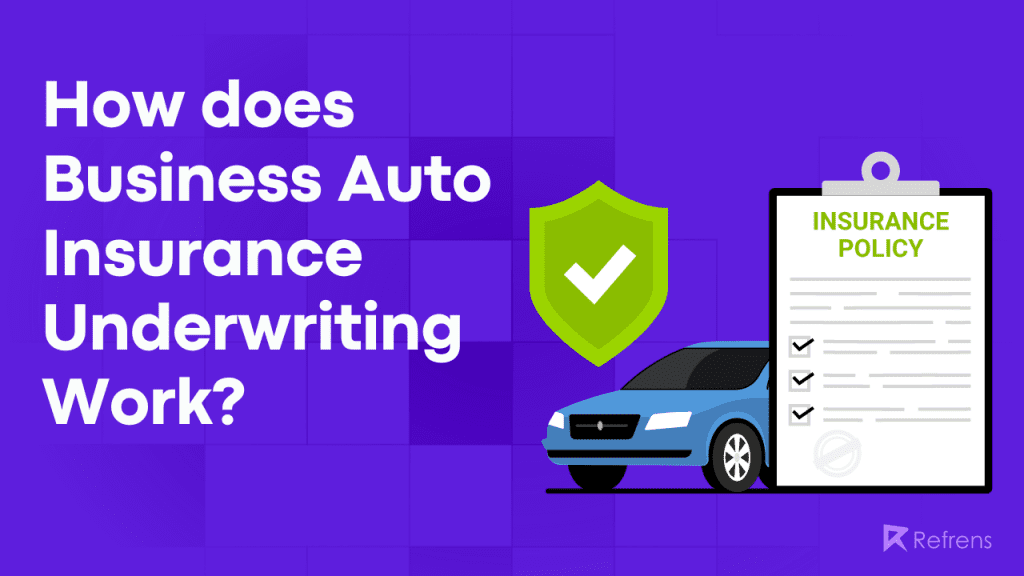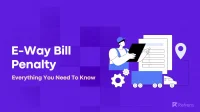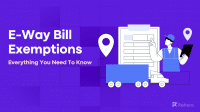The enigmatic realm of business auto insurance underwriting delves into the intricate complexities of assessing and appraising risks entwined with the protection of commercial vehicles. The underwriters, like purveyors of arcane knowledge, wield their analytical acumen to unravel a tapestry woven with myriad factors in order to ascertain the levels of peril involved and establish premiums befittingly.
What is Business Auto Insurance Underwriting?
Of paramount importance among these unfathomable aspects is the labyrinthine history of one’s driver’s license. Each applicant’s driving record undergoes meticulous scrutiny, unveiling any past transgressions or calamities on the roadways. This wellspring of information facilitates an informed understanding regarding future episodes that may necessitate claims being lodged against policies. Moreover, if perchance an applicant carries within them the weighty burden of a suspended or revoked license, they shall be mandated to procure an SR-22 form where they become eligible for coverage.
In summation, this esoteric discipline known as business auto insurance underwriting entails nothing short but a comprehensive evaluation encompassing multifarious facets such as driver records, vehicular employment particulars, and statistical representations cloaked in accident lore. Through this exhaustive process of assessment, insurers strive to ascertain with unerring precision the levels of risk inherent in insuring commercial vehicles whilst adroitly establishing premiums that mirror those very risks.
Factors Considered in Underwriting Business Auto Insurance
When it comes to underwriting business auto insurance, there exists a multitude of perplexing factors that insurance providers must carefully untangle before granting approval to an application. These enigmatic elements serve as the compass in determining the level of risk associated with insuring a specific vehicle or fleet and wielding their influence over the premiums imposed upon policyholders.
Firstly, tenacious insurance agents undertake the arduous task of scrutinizing the driving records belonging to those individuals listed on said policy. This intricate evaluation involves delving into any past accidents or traffic violations committed by these drivers. A pristine driving record serves as undeniable evidence of responsible behavior behind the wheel, which may result in more palatable premiums for policyholders. Conversely, an unsettling history marred by accidents or violations only serves to amplify insurers’ perception of risk.
Secondly, the insurance providers delve deep into the abyss that is vehicle type and intended use when formulating rates. By considering labyrinthine factors such as make and model, age, mileage, and condition, we endeavor to fathom how each peculiar characteristic contributes to overall risk assessment. Moreover, if your business necessitates specialized vehicles tailored for transporting hazardous materials or unwieldy machinery – brace yourself! This will indubitably impact both the coverage options available and the premium costs incurred.
Lastly (if you can bear another twist), certain extraordinary circumstances mandate additional contemplation during our underwriting process. Picture this – an applicant grapples with a license that has been suspended or revoked due to egregious offenses like DUI (Driving Under the Influence). In such bewildering scenarios where responsibility hangs precariously in balance; these applicants may be subjected to fulfill what is known as an SR-22 requirement – filing proof of financial accountability with their state’s illustrious Department of Motor Vehicles (DMV). You see now why we tread so cautiously? These situations represent towering risks that require our utmost vigilance.
In conclusion, these underwriters, with their unwavering determination and unyielding spirit, play an indispensable role in evaluating those business auto insurance applications. Armed with a plethora of factors encompassing drivers’ records and behaviors on our perplexing roadways; they skillfully navigate through the labyrinthine maze of vehicle specifications. By astutely considering these enigmatic elements alongside any special requirements like SR-22 filings – imposed by DMV upon high-risk drivers who have previously committed grave offenses – insurers can accurately divine the risks entailed in providing coverage whilst setting premiums that are justly commensurate with policies offered.
The Role of Underwriters in Evaluating Business Auto Insurance Applications
Underwriters play a vital and perplexing role in the assessment of business auto insurance applications. Their foremost duty is to delve into the enigma surrounding insuring a particular vehicle or fleet, deciphering the appropriate premiums for adequate coverage. To unravel this complexity, underwriters meticulously scrutinize every application, pondering over various factors that may unleash unexpected accidents or claims.
Amidst this labyrinthine evaluation process, underwriters pore over the information provided by applicants regarding their vehicles, drivers, and past driving records. Moreover, they venture beyond conventional sources and tap into external data fountains like motor vehicle reports and loss history databases to glean additional insights into potential risks. This meticulous assemblage of data allows underwriters to unlock a profound understanding of an applicant’s risk profile.
The duties of underwriters transcend mere eligibility evaluation; they also act as gatekeepers ensuring compliance with minimum requirements set forth by regulatory bodies or insurance companies themselves. These stipulations might entail specific types and quantities of coverage indispensably required for diverse vehicles or industries. By rigorously enforcing these benchmarks, underwriters serve as guardians shielding both policyholders and insurers from formidable liabilities.
In essence, the role of underwriters in appraising business auto insurance applications involves navigating through uncertainty while embracing bursts of insight garnered from extensive datasets encompassing vehicles’ mysteries, drivers’ histories, and industry-specific nuances. Underwriters bear the onus of determining fitting premiums based on their evaluations while simultaneously verifying adherence to minimum prerequisites established by regulators or insurers themselves. Through their fastidious evaluation process, these custodians contribute significantly towards upholding equity and precision within the realm of the business auto insurance market.
Data Collection and Analysis in Business Auto Insurance Underwriting
Data collection and analysis are of utmost importance in the realm of business auto insurance underwriting. The intricate process involves gathering pertinent data pertaining to insured vehicles, drivers, and their driving history in order to make precise risk assessments and establish suitable premiums.
One essential aspect of data collection revolves around verifying that the insured party meets the necessary insurance prerequisites. This entails ensuring that the vehicle possesses a valid registration while simultaneously complying with state or local regulations. Moreover, underwriters meticulously scrutinize the driver’s past experiences to evaluate their inherent risk profile. Previous accidents, traffic infractions, or claims can significantly impact premium calculations.
Another pivotal facet of data collection lies in determining which coverage is most appropriate for each policyholder. Underwriters consider an array of factors when deciding on comprehensive coverage levels as well as liability coverage thresholds. These deliberations may encompass evaluating the value of the insured vehicle, analyzing usage patterns, and assessing potential risks associated with particular geographical areas.
Car accident lawyers in San Diego play a crucial role in navigating the complex aftermath of vehicle collisions. Specializing in personal injury law, these attorneys advocate for victims by meticulously investigating accidents, gathering evidence, and negotiating with insurance companies to ensure fair compensation for medical expenses, lost wages, and pain and suffering
Once all relevant data has been amassed, it undergoes stringent analysis by astute underwriters utilizing cutting-edge algorithms and statistical models. These sophisticated tools facilitate uncovering discernible patterns or trends indicative of heightened or diminished risk profiles exhibited by specific policyholders. By thoroughly dissecting this information, insurers can formulate more accurate predictions about prospective future claims.
Assessing Risk and Determining Premiums in Business Auto Insurance Underwriting
In the perplexing realm of business auto insurance underwriting, the assessment of risk and determination of premiums involves a whirlwind of factors. It begins with an exploration of liability requirements specific to each unique business. Underwriters delve deep into these exigencies, seeking to ensure that the policy at hand sufficiently shields against any potential damages or injuries that may befall those affected by the insured vehicle.
But this is merely the tip of an intricate iceberg. To accurately gauge risk, underwriters embark on a journey through a labyrinthine landscape of data points. They meticulously scrutinize variables such as the number of vehicles possessed by the enterprise, their idiosyncratic usage patterns, driver histories laden with tales both triumphant and tragic, and any claims previously made. By immersing themselves in this tapestry of information, underwriters can emerge enlightened enough to make judicious decisions regarding premium rates.
And let us not forget about one particularly confounding consideration – whether or not a business possesses an approved cheap SR22 insurance policy. This curious creature often emerges from its shadowy lair for high-risk drivers who have committed transgressions or been convicted in some manner. Should a company already hold this elusive prize – an approved cheap SR-22 insurance policy – it might signify responsible conduct on behalf of its intrepid drivers and potentially lead to lower premiums.
Through careful contemplation and mind-bending assessments based on liability requirements, meticulous analysis of pertinent data points, and even ponderings upon existing approved cheap SR-22 policies if relevant, the sagacious underwriter ultimately unveils appropriate premium rates for businesses thirsting for auto insurance coverage. These calculated measures serve dual purposes: ensuring equitable pricing while simultaneously providing ample protection against perils associated with navigating commercial vehicles. For further insights into car pricing and how it factors into business auto insurance underwriting, you can also explore this informative article on determining the cost of your car.
Conclusion
To conclude, data collection and analysis are indispensable in business auto insurance underwriting as they empower insurers to conduct precise risk evaluations and calculate appropriate premiums based on individual circumstances.
Also learn: The Art of Writing with Top AI Writing Tools


















